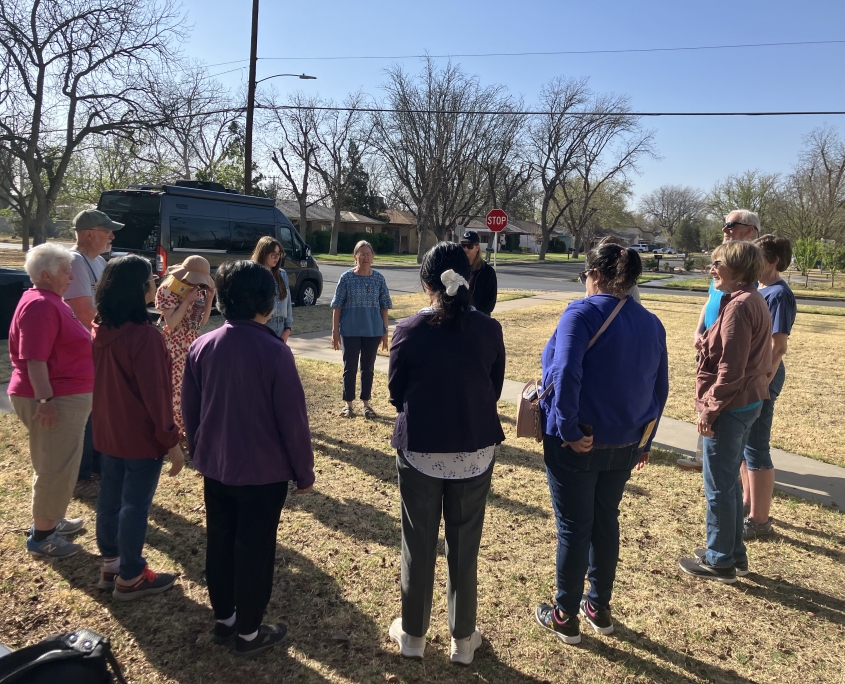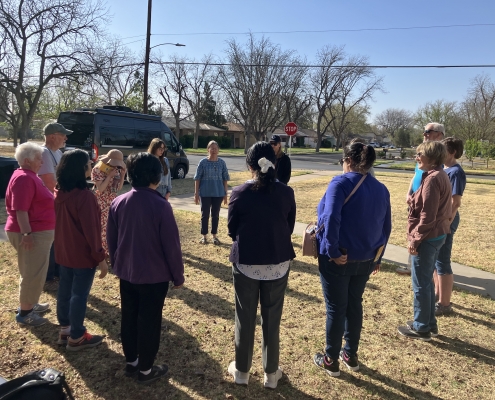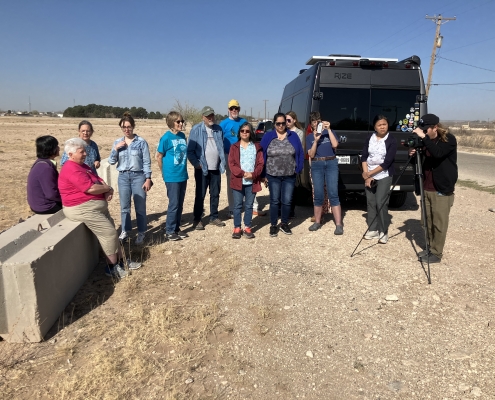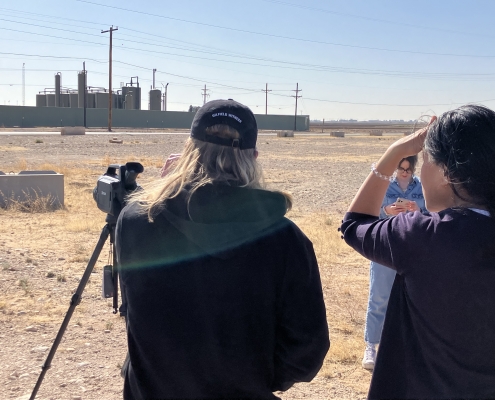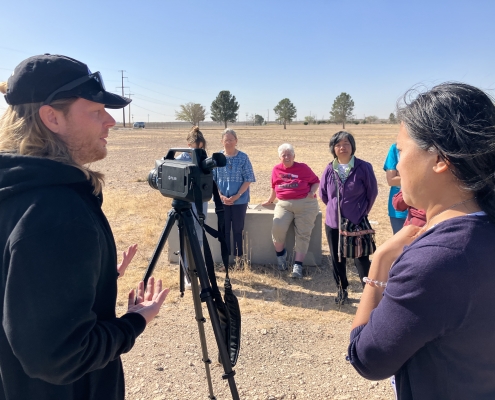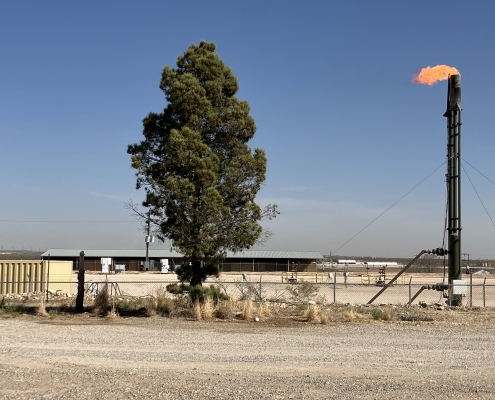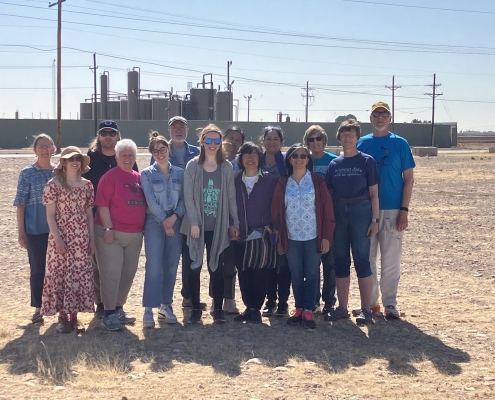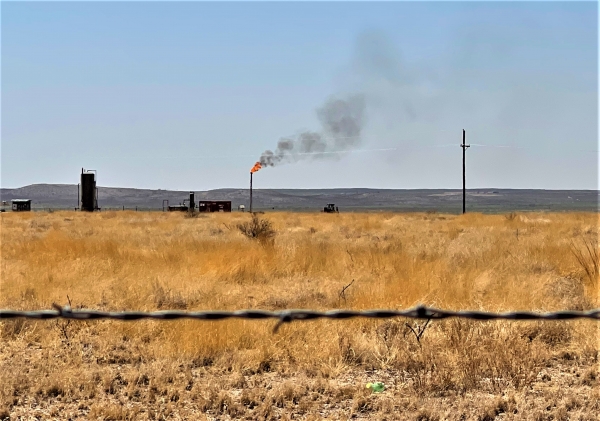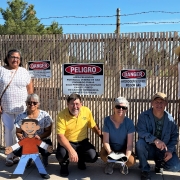NM IPL Spring Immersion Retreat Update
The New Mexico Interfaith Power and Light Spring Immersion Retreat over this past weekend brought together people of faith from Albuquerque, Carlsbad, Chaparral, El Paso, San Antonio and Laredo to Southeast New Mexico to learn about oil and gas production and concerns for health and the environment. The group met with frontline community members, viewed illegal methane emissions through a flr camera, prayed, shared concerns and committed to ongoing actions to protect air, water, climate and communities. The next pilgrimage will be in the fall.

